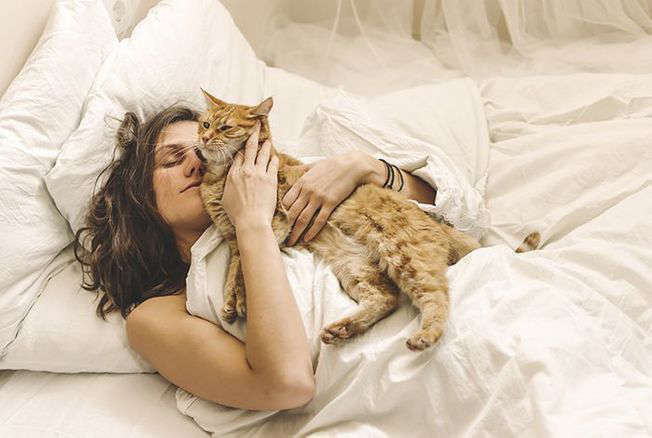Meows, jumps on the bed… A cat can be more or less excited at night and disturb our rest. Here is what could explain this phenomenon and how to remedy it.
Often referred to as a nocturnal and independent animal, the cat is wedged on a polyphasic rhythm. Indeed, his daily life is punctuated by rest and waking times.
This hairball spends about 13 to 16 hours sleeping. However, unlike a kitten who sleeps several hours at a time, an adult cat performs its cycles several times. When he is awake, he takes the time to feed himself, to play, to explore… It remains a punctual animal and attached to routines and habits. A ritual of meals at a fixed time, for example, helps to reassure him. If it is more or less calm, it experiences peaks of activity when the moment seems favorable to it to hunt small prey …
Meows, scratched door, jump on the bed … The night’s pass and your pet are not inclined to sleep? There are several possible causes and solutions that exist.
Avoid night awakenings
A cat may suffer from insomnia. Nevertheless, nocturnal hyperactivity often results from a lack of activity during the day. To avoid any inconvenience, it is advisable to solicit him as much as possible when he is awake so that he waits for only one thing in the evening: to sleep. Just promote interactions, play with him. If a garden is available and the environment is familiar to him, it is advisable to let him do his life outdoors so that he is as active as possible.
In case of absence, it is recommended to leave at his disposal many elements to entertain him (and “tire” him). Toys hanging to catch, balls to run after, cat tree to climb on… The main thing is to create a playground conducive to let off steam while avoiding nonsense.
The ultimate option? An electronic toy that moves and can imitate the movements of potential prey. Enough to stimulate him, capture his attention, and make him want to spend.
A cat tends to model its life to our habits. If our bedtime routine is fairly regular, its nightlife will be all the more peaceful.
It is also essential to remain attentive to the intonation of meows emitted during the night. Indeed, our cat, especially if he is old, can suffer from nocturnal wanderings. They can be linked to a form of anxiety, be caused by pain… If the problem persists, it is recommended to make an appointment with a veterinarian to determine its origin and find the appropriate treatment.
Don’t miss interesting posts on Famousbio










